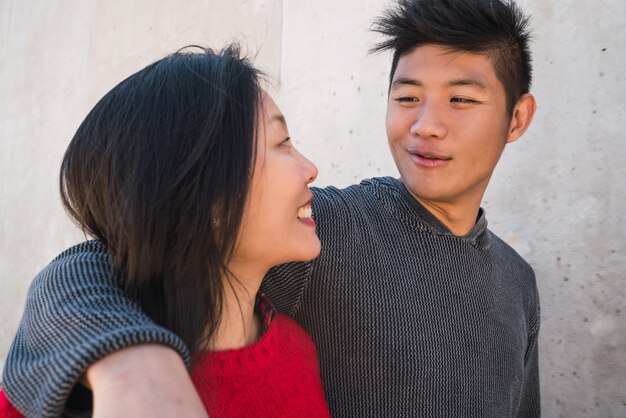

A member of the Wildmind community recently reminded me of an article titled “The Surprising Downsides of Empathy,” which was published on the BBC website about two-and-a-half years ago. According to the article, misplaced empathy can lead to exhaustion, apathy, and even prevent you from helping the very people you intend to assist. Additionally, empathetic tendencies can be exploited to manipulate people into committing acts of aggression and cruelty.
Generally, empathy is viewed positively, with most people believing that the world needs more of it. Those who think otherwise often advocate for a “tough love” approach, believing that too much empathy coddles people, especially the young. I suspect that those individuals may often be unkind and misunderstand the nature of empathy. Today, I’ll be focusing on common misunderstandings of empathy.
The BBC article quotes researcher Paul Bloom, author of “Against Empathy.” In my previous blog, I commented on an article based on his book, where he made an important distinction between empathy and compassion. Bloom argues that while empathy involves feeling another person’s sorrow (like when a friend’s child has drowned), compassion is about caring for that person and wanting to help, without necessarily sharing their anguish.
Bloom’s distinction is significant. Empathy is about sharing another person’s emotional state, whereas compassion involves a desire to alleviate their suffering. You don’t need to imagine in detail what someone is going through to feel empathy when they share tragic news; you naturally feel touched by their situation as a non-psychopath.
On the other hand, compassion is active. It is derived from the Pāli and Sanskrit word karuna, which stems from the verb karoti, meaning “to do.” Therefore, compassion involves taking action to help others, beyond just empathizing with their pain.
Bloom illustrates his point with an example: An adult comforting a child who is scared of a barking dog. The adult doesn’t need to share the child’s fear to provide comfort. They can have compassion and aim to alleviate the child’s distress without experiencing the same fear. According to Bloom, compassion alone suffices; empathy is unnecessary.
But is it really possible to have compassion without empathy? Imagine an adult without any empathy. To such an individual, a crying child might just be an annoyance, prompting them to shout at the child, thus increasing its fear. This adult wouldn’t understand the child’s experience of fear or need for reassurance, which requires empathy.
In truth, empathy is at work in Bloom’s example. A compassionate adult understands what the child is experiencing and knows what the child needs, which is an empathetic response. This understanding and shared experience drive their compassion.
Misinterpreting empathy as the need to fully experience another’s terror is misleading. Often, when discussing situations where a positive trait like empathy leads to negative outcomes, the issue is said to stem from being “too empathetic.” I believe this is a misconception.
No virtue is complete in isolation. For instance, generosity is beneficial and makes people happier. However, if one gives away resources essential for their own family’s survival, does it mean they are “too generous?” I don’t think there can be too much of a virtue. Instead, I believe lacking other virtues, like prudence and wisdom, which help balance generosity, is the real issue. Prudence and wisdom help us understand the consequences of our actions and suggest limits when needed.
Similarly, empathic distress occurs when empathy is not balanced by other virtues. Taking on so much of another’s suffering that you become paralyzed and unable to help is unhelpful. This transforms a situation needing one helper into one needing two. The Buddha referred to indulging excessively in suffering as “grief, sorrow, and lamentation,” which causes suffering.
Therefore, what’s missing when empathy becomes toxic? As with generosity, empathy needs to be balanced with wisdom. For instance, Bloom shows that people often want a specific girl brought to their attention to skip the queue for life-saving surgery, ignoring others who might be in more urgent need. This happens because of misplaced empathy for the girl, overlooking the others who remain anonymous.
Wisdom helps us realize that others in the queue also deserve care. Balancing empathy with ethical awareness of right and wrong is crucial. In another study, people were willing to inflict pain on a competitor of a financially struggling student, as they empathized only with the student. Ethics, especially the Buddhist kind, teaches us that inflicting pain upon others for any reason, including empathy-driven ones, is wrong.
Most importantly, self-compassion must balance empathy. When moved by another’s distress, we experience discomfort. Self-compassion teaches us to support ourselves emotionally and recognize when we’re taking on more suffering than we can handle, which isn’t necessary to be helpful.
The “downsides” of empathy, as described in the article, are not actually about empathy itself. They stem from lacking virtues like wisdom, ethics, and self-compassion. While empathic distress is unhelpful and even harmful, it’s not the entirety of empathy. You don’t need to imagine starvation in detail to care about starving people; you just need empathy to feel compassion and be motivated to help.
It’s good that Bloom and others spotlight the harmful side of unbalanced empathy termed “empathic distress.” However, the real issue is the under-development of complementary virtues.